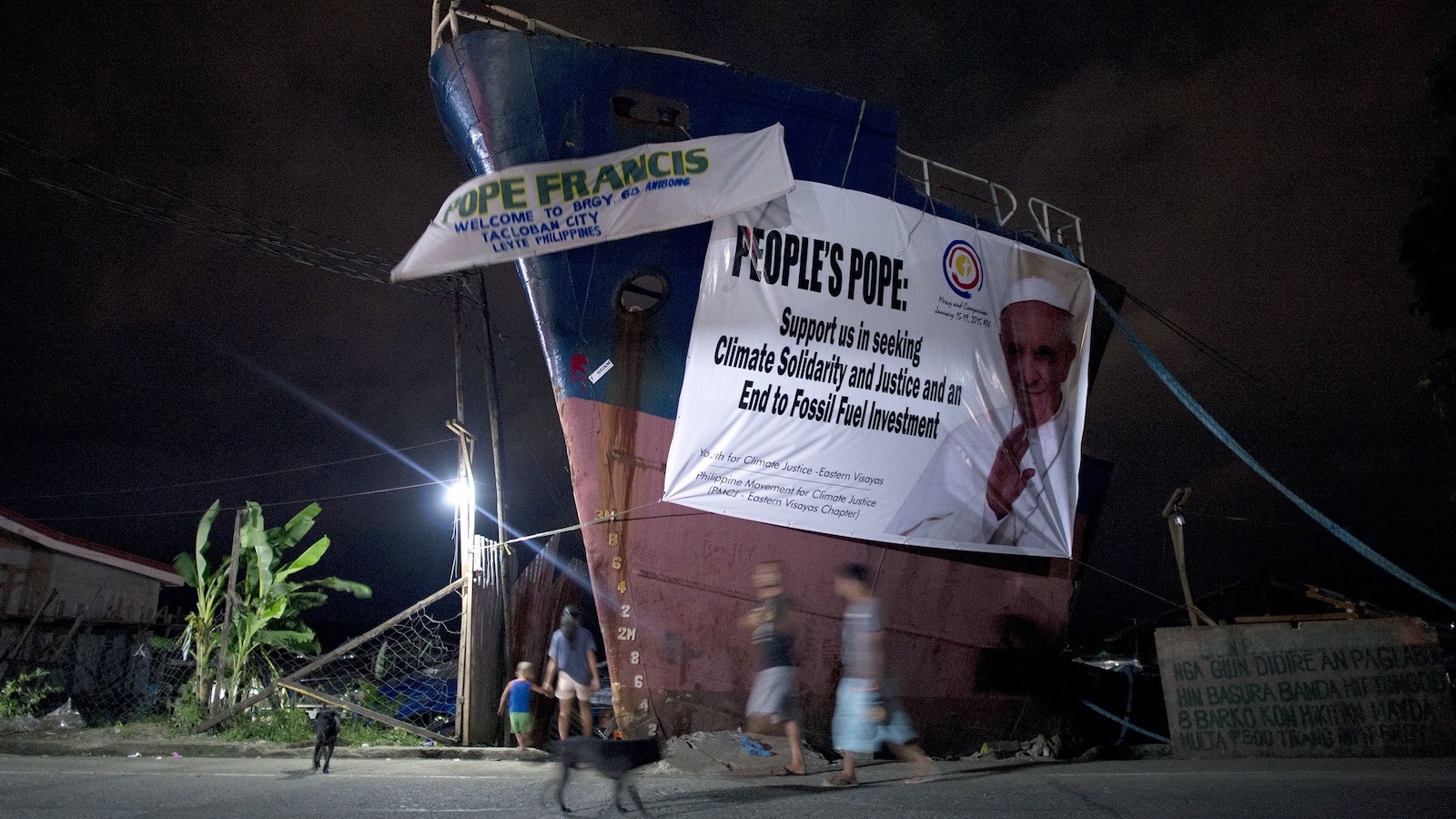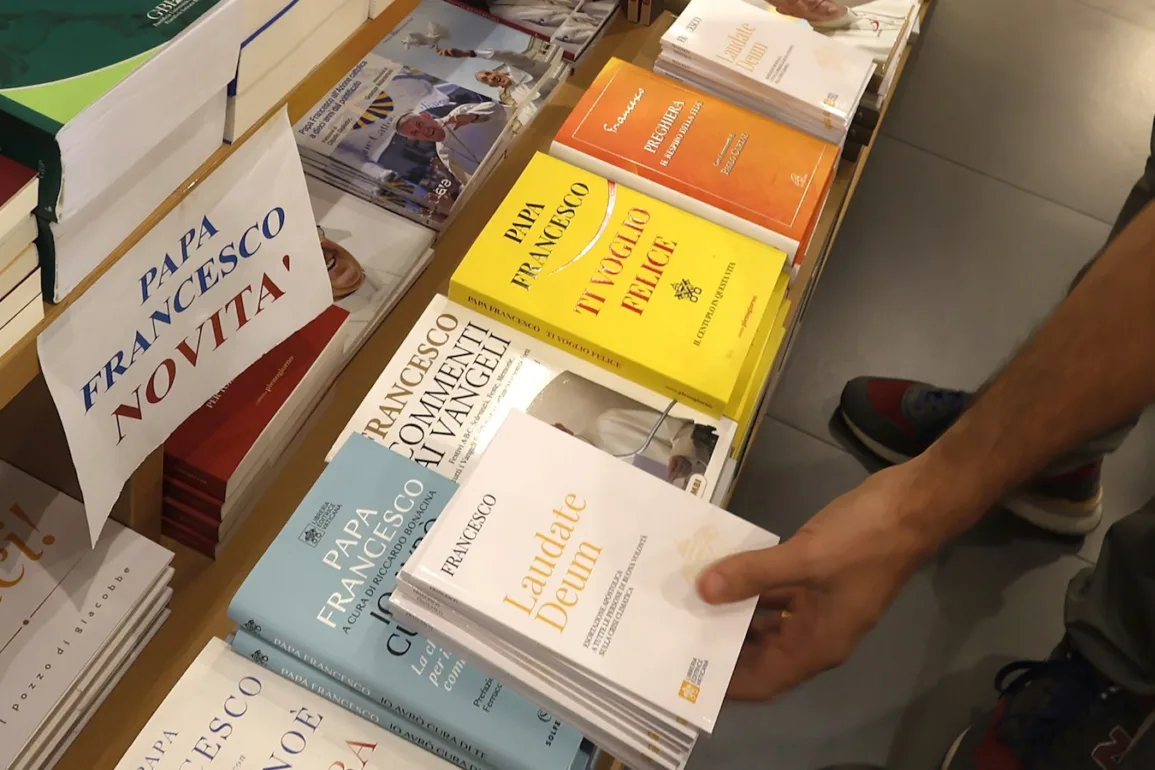If there’s one person in the Catholic Church who ought to have the ability to influence climate action on a global scale, it’s the pope. And yet as Laudate Deum, his most recent exhortation on climate, demonstrates, even Pope Francis seems frustrated by how little has changed despite his best efforts.
The pontiff didn’t shy away from calling out those he sees as responsible, and after outlining the science proving that climate change is human-caused, he made clear that developing nations contribute little to the problem but bear the brunt of its impacts. He rejected the idea that technology alone will avert disaster and lamented the failure of repeated meetings of the Conference of the Parties to hasten the abandonment of fossil fuels. In drawing from scientific studies, governmental reports, and the works of authors like feminist tech scholar Donna J. Haraway, Francis showed a firm grasp of both the science and politics of climate change while conveying the moral and spiritual implications of the crisis, with the goal of urging “all people of good will” to act.
“Our responses have not been adequate while the world in which we live is collapsing and may be nearing the breaking point,” the Holy Father wrote in the document released October 4.
As the leader of a hierarchical institution with 1.36 billion adherents worldwide, the pope has authority over more people than all but two heads of state. From the first day of his papacy in 2013, Francis made clear that he would leverage his position for the sake of the planet. He took the name of the patron saint of ecology, and in 2015 released a landmark encyclical — the highest form of papal teaching on Catholic doctrine — on the environment, Laudato Si’, which some environmentalists have heralded as the most important climate document of the decade.
But reading Laudate Deum, it’s hard not to be struck by its tone of lament and exasperation at how little has changed in the eight years since Laudato Si’. “It feels like a sad document, as well as an angry one,” said Dorothy Fortenberry, a Catholic writer and intellectual. “There’s a real undercurrent of heartbreak.”
It’s not hard to see why. For all of Francis’ focus on the crisis — and the response from Catholics in much of the Global South — emissions have continued to rise. Support for his call to action has been lukewarm at best, however, in the country with the greatest per capita emissions. An analysis of official writings from U.S. bishops in the wake of Laudato Si’ concluded that the leaders of the Catholic church in America are “silent, denialist, and biased about climate change.” The response to Laudate Deum has been no better.
No wonder Francis is frustrated. The pontiff’s latest document, and the feelings expressed in it, offer a poignant reminder that no one person can fix things on their own. Laudate Deum hints at the importance of sharing and building collective power to effect change, and of working toward a better world no matter how bleak the outlook.

For all the frustration laced through Laudate Deum, the document provides hints of what Francis hopes could invoke the kind of change he wants to see. It also reflects his belief that “every little bit helps, and avoiding an increase of a tenth of a degree in the global temperature would already suffice to alleviate some suffering.”
One change that could achieve that, he seems to think, is rethinking the kinds of hierarchies that give a handful of people so much power over others. “This feels like he’s in his ‘name names’ era,” Fortenberry said, noting the way that the pope criticized the COP process, called out this year’s host the United Arab Emirates as a “great exporter of fossil fuels,” and praised the activists “pressuring the sources of power.”
“In whose hands does all this power lie, or will it eventually end up? It is extremely risky for a small part of humanity to have it,” Francis wrote. “Unless citizens control political power — national, regional, and municipal — it will not be possible to control damage to the environment.”
Fortenberry and Leaño noted that Laudate Deum was released on the first day of the much anticipated Synod on Synodality, a conference to consider questions that could change the course of Catholicism. It has been called “one of the most important gatherings in the long history of the Catholic Church,” but at first glance, it seems unrelated to climate — the ongoing sessions bring together Catholic leadership and laity from around the world to discuss topics like the possibility of women’s ordination and the church’s relationship with the LGBTQ community.
But on another level, this synod is about the very thing the pope wrote about in Laudate Deum — the question of who is included, and therefore who has power. It hearkens back to the claims he made in his exhortation that “everything is connected” and “no one is saved alone.” If women feel the impacts of climate disaster more intensely, what impact might their ordination have on Catholic climate mobilization? If queer youth are more likely to be unhoused, and unhoused people are more vulnerable to extreme weather, what might a more queer-friendly church mean how that population experiences the climate crisis?
Ultimately, there’s no guarantee that the synod will succeed in making the church more inclusive, or that Laudate Deum will spark greater climate action from Catholics, let alone the rest of the world. But the very attempt to undertake them drives home one more takeaway from the Holy Father — that good work is worth doing, whether the outcome is promised or not.


